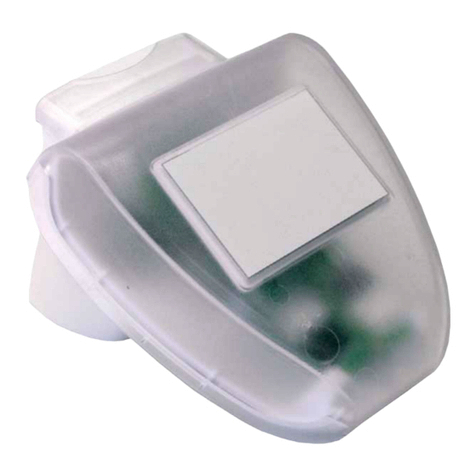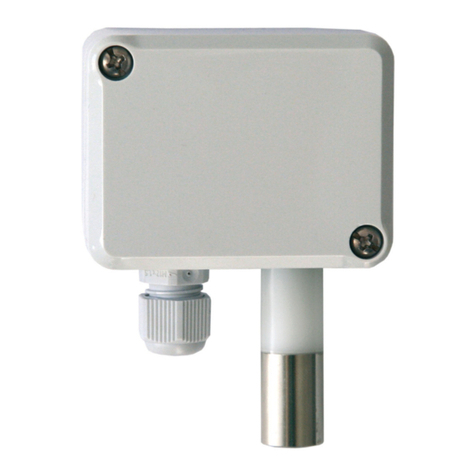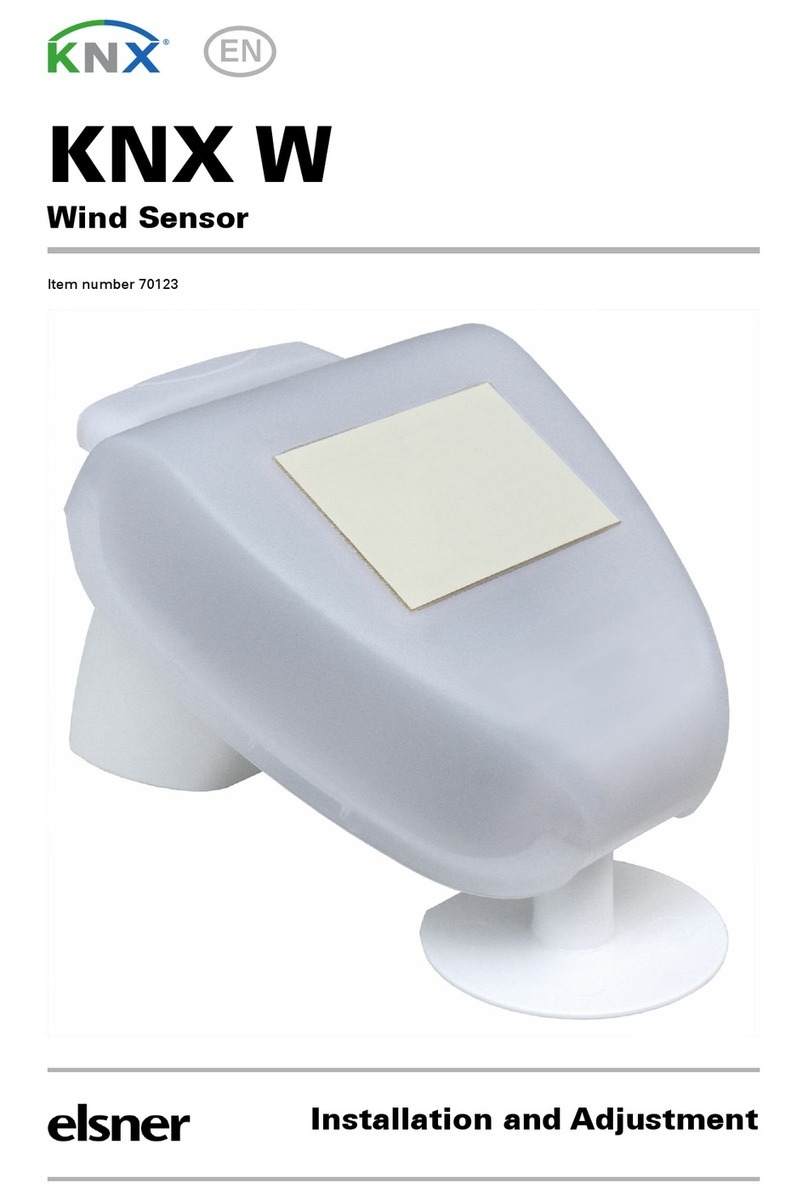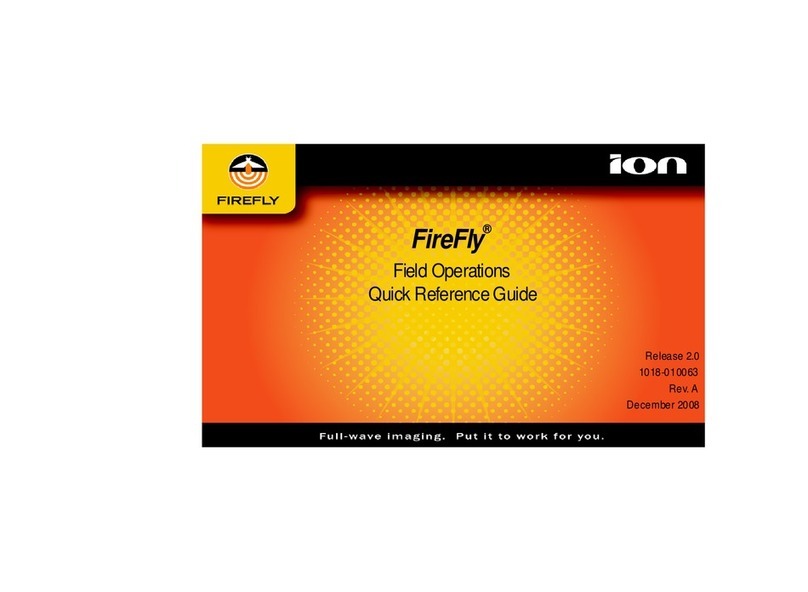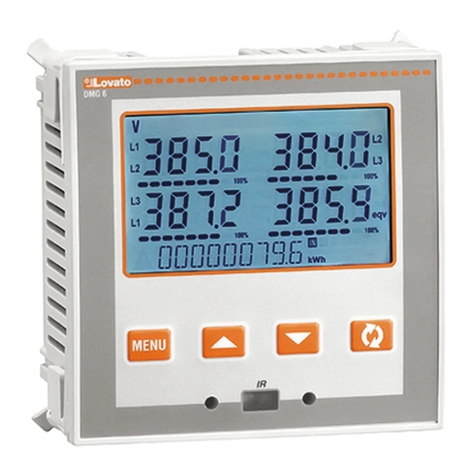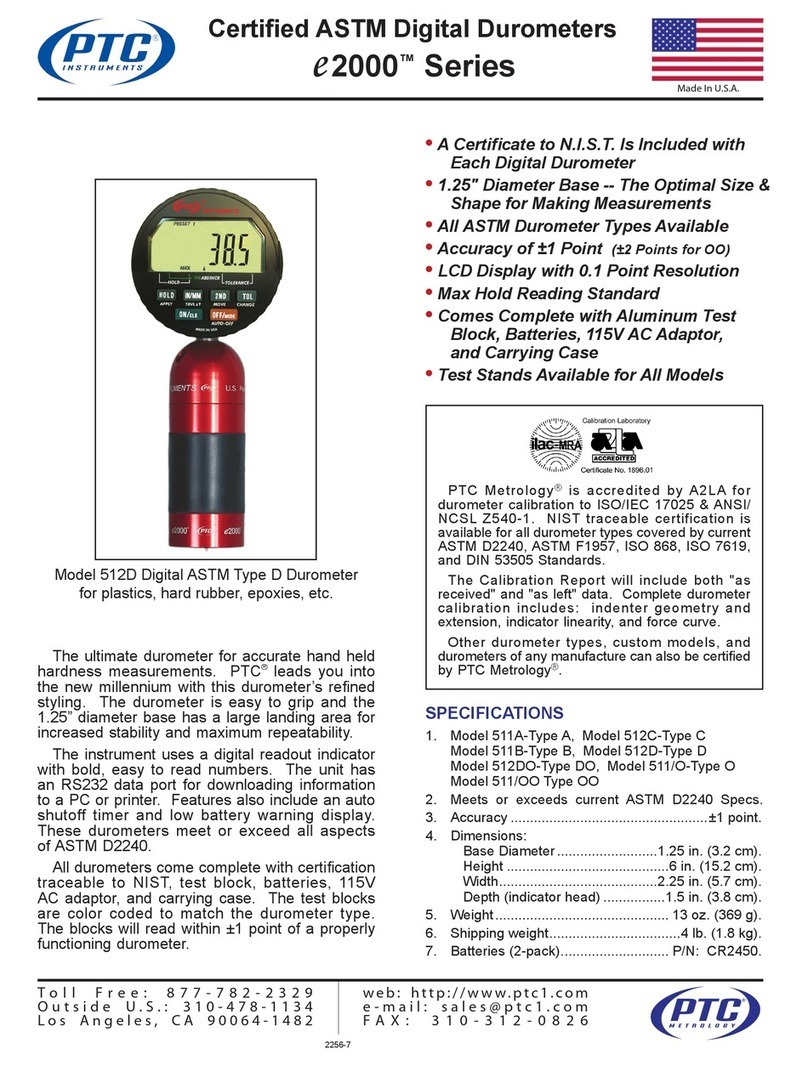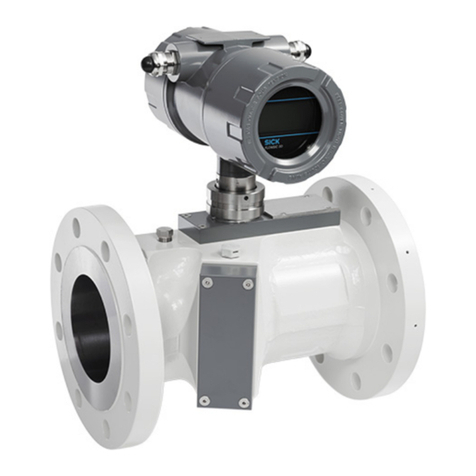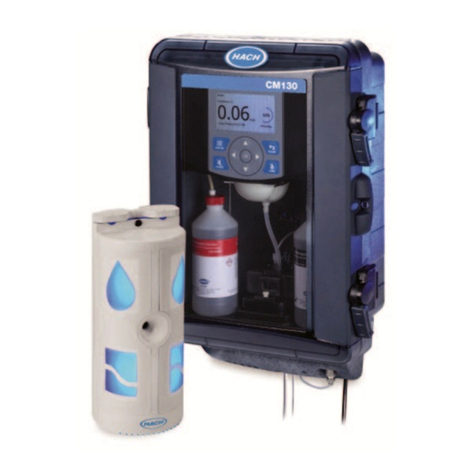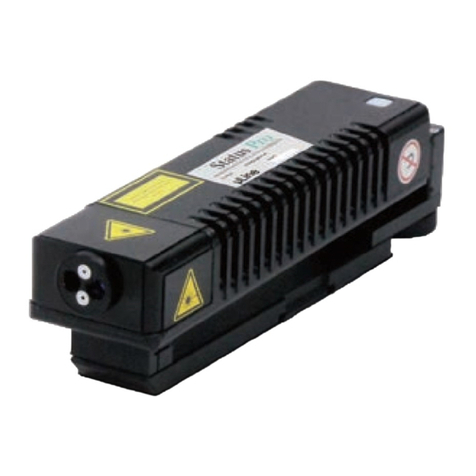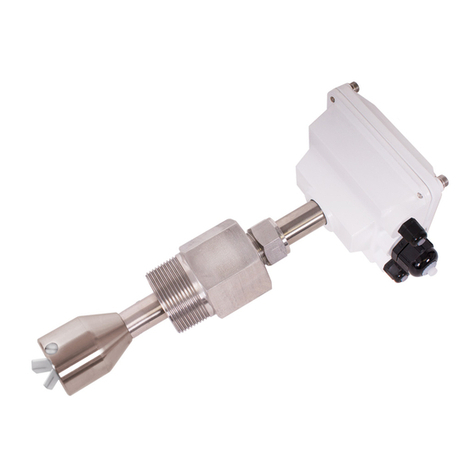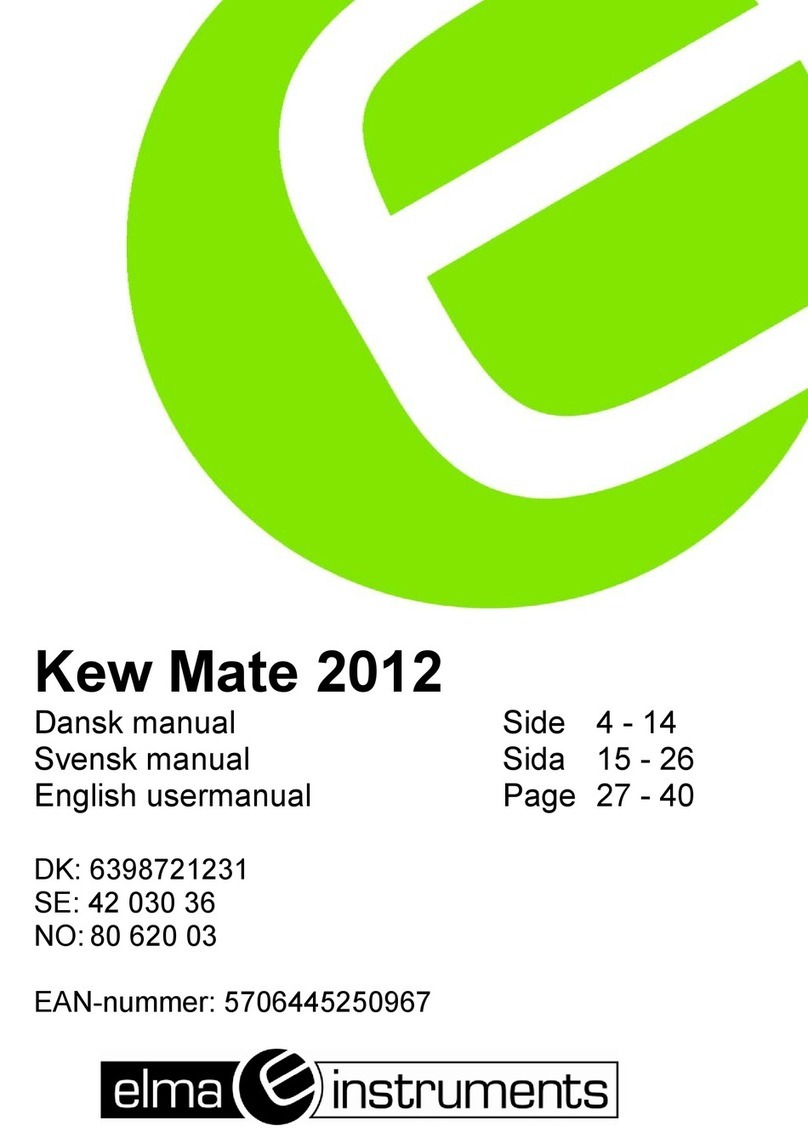Elsner KNX TH65-AP User manual

Thermo-Hygrometer KNX TH65-AP 1
Thermo-Hygrometer KNX TH65-AP • Version: 21.09.2022 • Technical changes and errors excepted. • Elsner Elektronik GmbH • Sohlengrund 16 • 75395 Ostelsheim • Germany • www.elsner-elektronik.de • Technical Service: +49 (0) 7033 / 30945-250
EN
KNX TH65-AP
Thermo-Hygrometer
Technical specifications and installation instructions
Item number 70184
1. Description
The Temperature and Humidity Sensor KNX TH65-AP measures temperature and
humidity in indoor and outdoor areas and calculates the dew point. The sensor can
receive external measured values via the bus and process them with the own data
to an overall temperature and overall air humidity (mixed values).
The KNX TH65-AP provides seven switching outputs with adjustable threshold va-
lues as well as additional AND and OR logic gates. The sensor has got a PI controller
for heating and cooling (depending on temperature) and for ventilation (depending
on air humidity) and it can emit a warning to the bus as soon as the area of optimum
comfort (according to DIN 1946) is left.
Functions:
•Measurement of temperature and air humidity (relative and absolute),
calculation of dew point
•Mixed values from own measured values and external values (proportions
can be set in percentage)
•PI controller for heating (one or two step) and cooling (one or two step)
depending on temperature
•PI controller for ventilation depending on humidity: Dehumidify/humidify
(one step) or dehumidify (one or two step)
•Threshold values can be adjusted per parameter or via communication
objects
•4 AND and 4 OR logic gates with each 4 inputs. Every switching incident
as well as 8 logic inputs in the form of communication objects may be used
as inputs for the logic gates. The output of each gate may optionally be
configured as 1 bit or 2 x 8 bits
Configuration is made using the KNX software ETS. The product file can be dow-
nloaded from the Elsner Elektronik website on www.elsner-elektronik.de in the
“Service” menu.
1.0.1. Scope of supply
• Sensor in on-wall housing
1.1. Technical specifications
The product conforms with the provisions of EU directives.
2. Installation and commissioning
Installation, testing, operational start-up and troubleshooting should
only be performed by an authorised electrician.
CAUTION!
Live voltage!
There are unprotected live components inside the device.
• Inspect the device for damage before installation. Only put undamaged
devices into operation.
• Comply with the locally applicable directives, regulations and provisions for
electrical installation.
• Immediately take the device or system out of service and secure it against
unintentional switch-on if risk-free operation is no longer guaranteed.
Use the device exclusively for building automation and observe the operating inst-
ructions. Improper use, modifications to the device or failure to observe the opera-
ting instructions will invalidate any warranty or guarantee claims.
Operate the device only as a fixed-site installation, i.e. only in assembled condition
and after conclusion of all installation and operational start-up tasks, and only in the
surroundings designated for it.
Elsner Elektronik is not liable for any changes in norms and standards which may
occur after publication of these operating instructions.
2.1. Location
The sensor is designed for surface mounting. When selecting an installation loca-
tion, please ensure that the measurement results are affected as little as possible by
external influences. Possible sources of interference include:
• Direct sunlight
• Drafts from windows and doors
• Warming or cooling of the building structure on which the sensor is mounted,
e.g. due to sunlight, heating or cold water pipes
• Connection lines which lead from warmer or colder areas to the sensor
Temperature variations from such sources of interference must be corrected in the
ETS in order to ensure the specified accuracy of the sensor (temperature offset).
For outdoor installation it must be ensured that a 60 cm gap is left below the sensor
in order to prevent it from being snowed during snowfall.
The sensor must be mounted vertically. The measurement probe and the cable out-
let must point downwards.
2.2. Notes on mounting and commissioning
Do not open the temperature sensor if penetration of water (rain) is likely: Only a
couple of drops could damage the electronic.
Do not dip the measuring tip (metal sleeve with sensor) in water.
Avoid the bedewing of the device. For critical applications, where condensate for-
mation is expectable, please ask Elsner Elektronik for customized solutions.
2.3. Mounting and connection
2.3.1. Layout of casing and pcb
2.3.2. Connection of the sensor
Remove the screwed on cover. Lead the KNX bus connection cable through the ca-
ble entry on the bottom of the casing and connect the bus +/- to the terminal provi-
ded for this purpose. Screw the cover back on.
After the bus voltage has been applied, the device will enter an initialisation phase
lasting a few seconds. During this phase no information can be received or sent via
the bus.
3. Addressing of the device at the bus
The device is supplied with the bus address 15.15.255. You can program another ad-
dress into the ETS by overwriting the 15.15.255 address or by teaching via the pro-
gramming button.
Housing Plastic material, sensor sleeve metal
Colour Grey
Mounting On-wall
Degree of protection Casing: IP65
Outside sensor: IP43
Dimensions approx. 65 × 91 × 38 (W × H × D, mm)
Weight approx. 80 g
Ambient temperature Operation -25…+80°C, Storage -55…+105°C,
avoid bedewing
Operating voltage KNX bus voltage
Bus current max. 5,5 mA, max. 9 mA when programming
LED is active
Data output KNX +/- bus terminal plug
Group addresses max. 184
Allocations max. 184
Communication objects 110
Measurement range
temperature
-25...+80°C
Measurement range
humidity
0% RH … 100% RH
Fig. 1 Opened casing, board
1 KNX terminal +/-
2 Programming button for tea-
ching the device
3 Programming LED
4 Cable entry with threaded joint
5 Sensor tip
Fig. 2 Rear view with dimensioning
of openings for mounting
1
2
3
4
5

Thermo-Hygrometer KNX TH65-AP 2
Thermo-Hygrometer KNX TH65-AP • Version: 21.09.2022 • Technical changes and errors excepted. • Elsner Elektronik GmbH • Sohlengrund 16 • 75395 Ostelsheim • Germany • www.elsner-elektronik.de • Technical Service: +49 (0) 7033 / 30945-250
4. Maintenance
Always isolate the device from the voltage supply for servicing and
cleaning.
The device must regularly be checked for dirt twice a year and cleaned if necessary.
In case of severe dirt, the sensor may not work properly anymore.
ATTENTION
The device can be damaged if significant volumes of water penetrate
the housing.
• Do not clean with high pressure cleaners or steam jets.
5. Disposal
After use, the device must be disposed of in accordance with the legal regulations.
Do not dispose of it with the household waste!
Other manuals for KNX TH65-AP
1
This manual suits for next models
1
Other Elsner Measuring Instrument manuals
Popular Measuring Instrument manuals by other brands
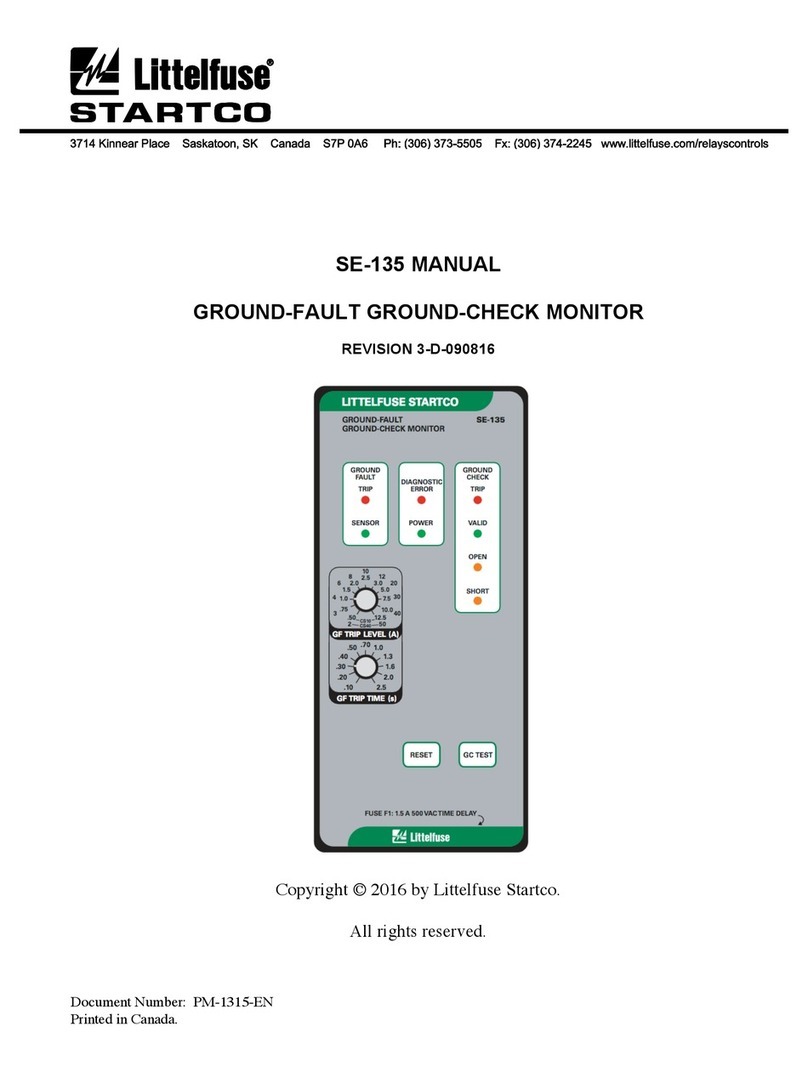
Littelfuse Startco
Littelfuse Startco SE-135 manual
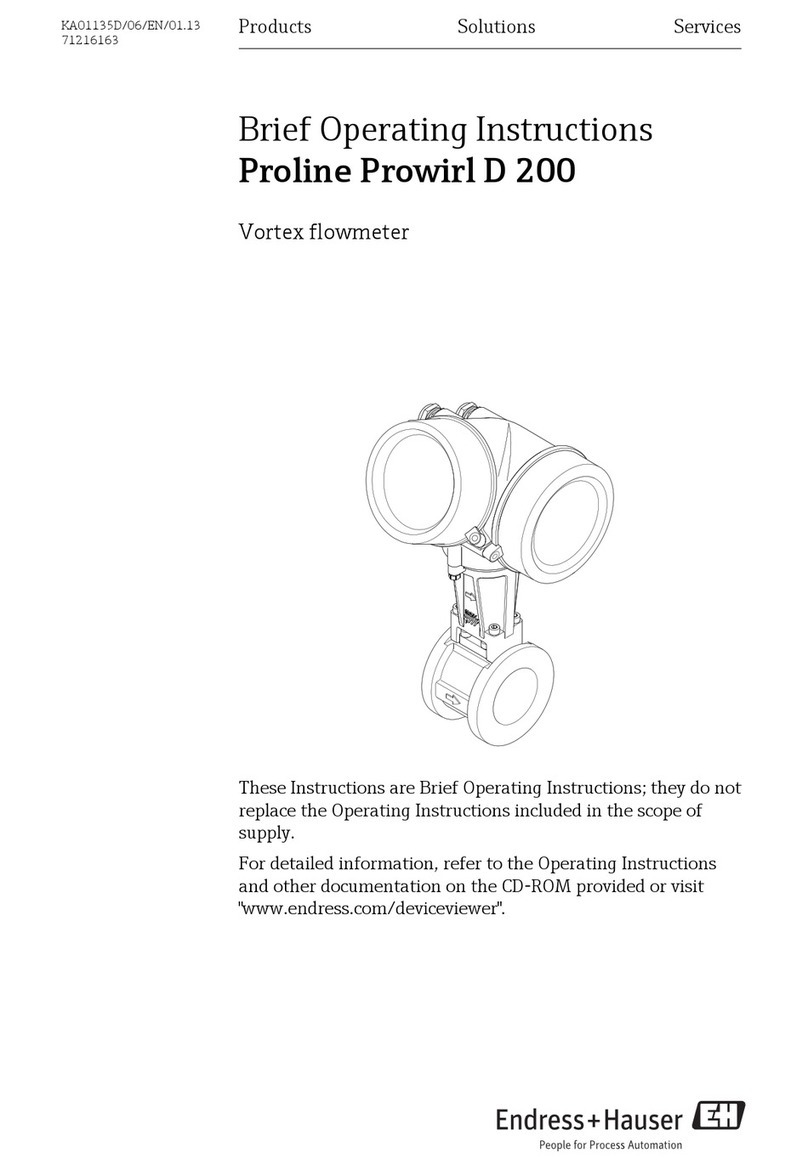
Endress+Hauser
Endress+Hauser Proline Prowirl D 200 Brief operating instructions
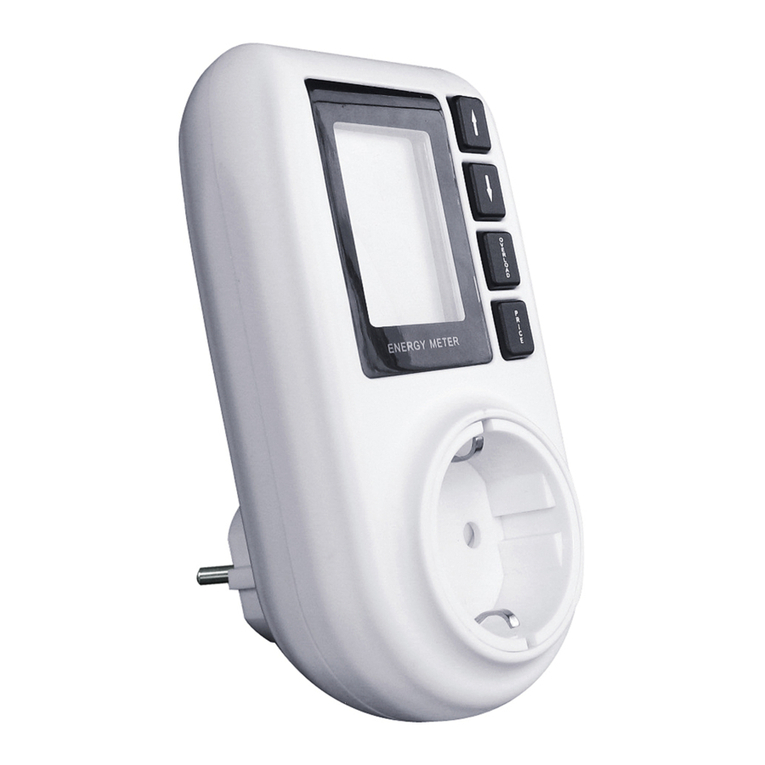
Intertek
Intertek SK410 user manual
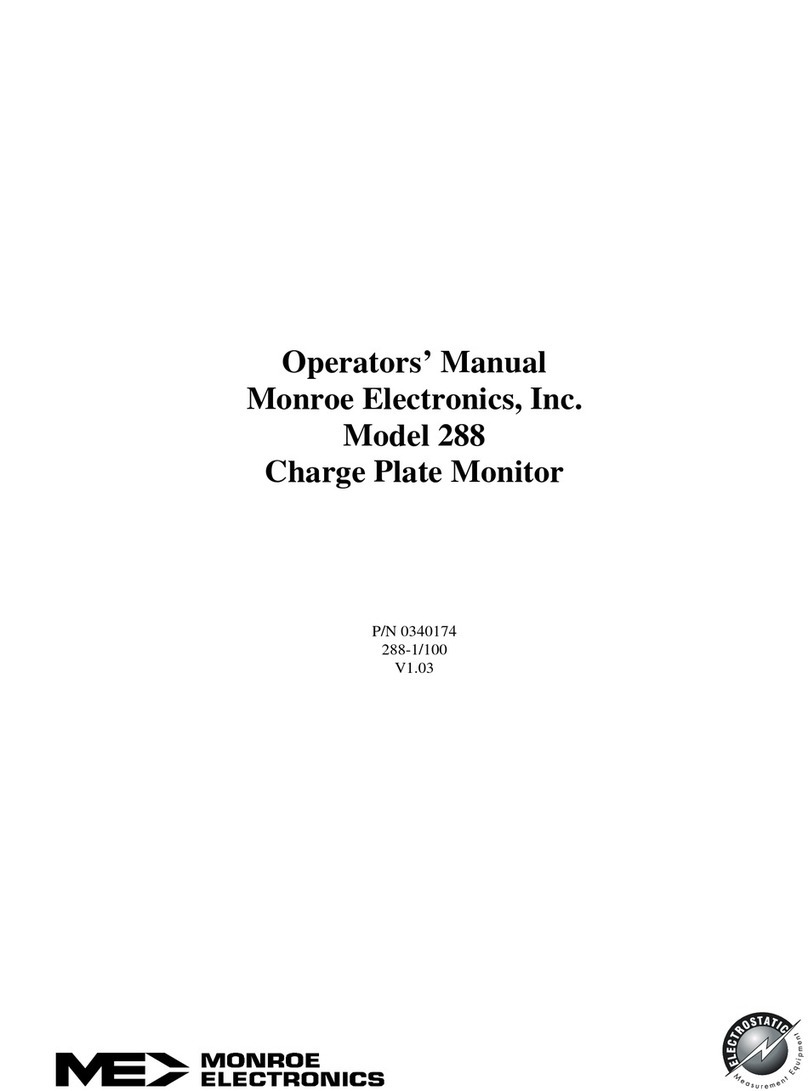
Monroe Electronics
Monroe Electronics 288 Operator's manual
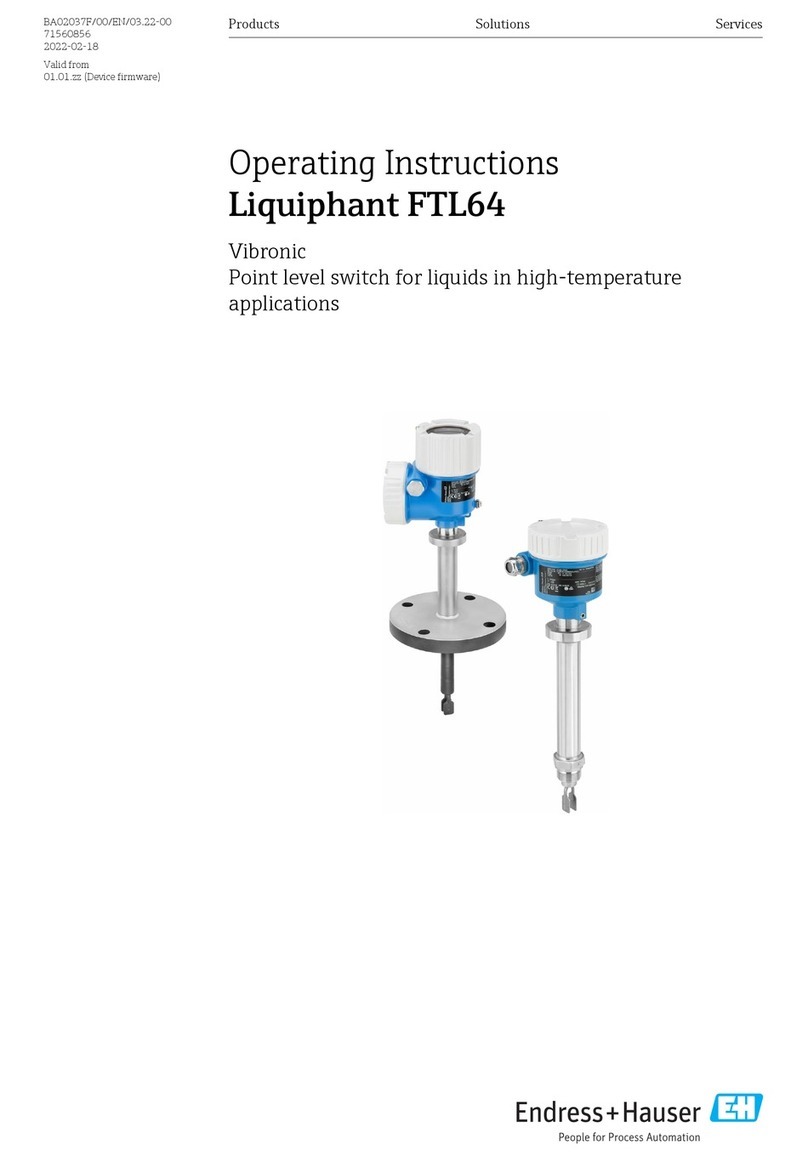
Endress+Hauser
Endress+Hauser Liquiphant FTL64 operating instructions
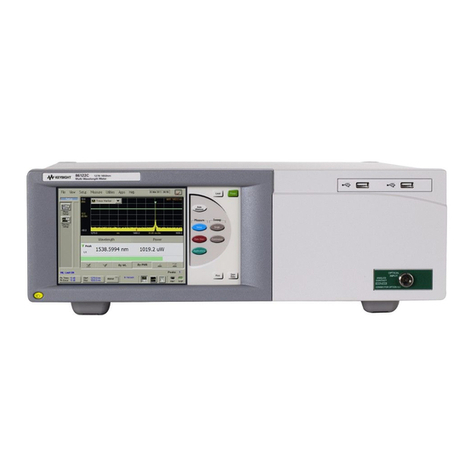
Agilent Technologies
Agilent Technologies 86122A user guide
